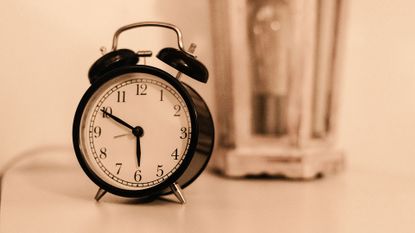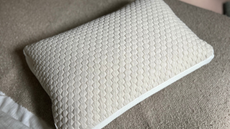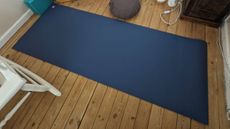The importance of getting enough sleep is well documented. Amongst the many health and wellbeing impacts, a lack of good quality sleep is linked with cognitive decline and conditions such as dementia. However, a recent study has found that sleeping for too much can have a similarly negative effect on brain performance.
As reported by The Conversation, researchers at the Washington University School of Medicine found that sleeping for under 4.5 hours or more than 6.5 hours a night – as well as poor quality sleep – was linked with cognitive decline over time. Taken on face value, that'd mean an optimum sleep period of 4.5 to 6.5 hours a night, which is significantly lower than the traditional 7-8 hour recommendation.
We spoke to lead researcher Brendan P Lucey, Associate Professor of Neurology, Sleep Medicine Section Head, to learn more about the findings, and if we should now all start setting our alarm clock or wake up light for 5am.
First, note that this isn't the first study to look into the relationship between amount of sleep and cognitive decline, and previous research has come up with the same trend of results – i.e. a U-shaped or inverse U-shaped relationship that pinpoints too much sleep as being as much of an issue as too little. "The majority of previous research was based on sleep measures in large population studies or trial cohorts," expands Brendan. "Our study was small compared to these studies but much better characterised with very richly detailed cognitive assessments, biomarkers and genetic risk factors for Alzheimer’s disease, and objective EEG (brain wave) sleep measurements."
However, Brendan believes that despite what the objective findings suggest, there's another reason why longer sleepers might score lower on cognitive tests than just purely the fact of being in bed for more hours. "I hypothesise that longer sleepers who perform worse on cognitive tests over time have a reason why their sleep is not restorative or of high quality," he says. "For instance, they may have an untreated sleep disorder such as obstructive sleep apnea, where longer sleep time doesn’t equal quality sleep time."
He also stresses that there are certain limitations that need to be considered when deciding what to do with the info, such as the fact that the accurate EEG measures are around an hour shorter than self-reported sleep time. In short, you shouldn't be rushing to adjust your sleep and wake schedule just yet. "I don't think anyone should use the results of our study to determine what their sleep time should be," Brendan concludes. "I recommend that people allow themselves 7-8 hours to sleep and maintain regular sleep and wake times. If their sleep quality is poor or they suspect sleep disorders, they should be evaluated by their physician."
Want to upgrade your sleep quality? Your first stop could be your bedding – here's our ranking of the best mattresses around, as well as your guide to the Black Friday mattress sales.











